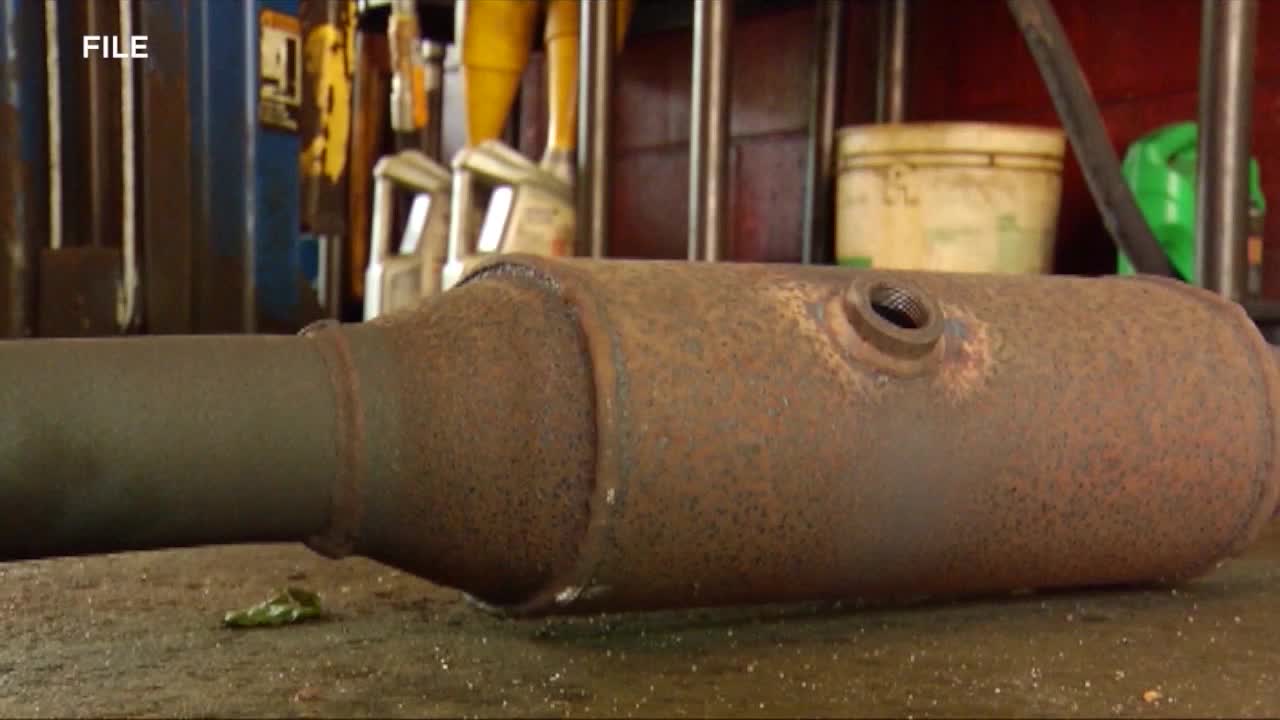Gov. Walz signs bill targeting catalytic converter thefts
[anvplayer video=”5168302″ station=”998122″]
Gov. Tim Walz signed a bill on Thursday to crack down on catalytic converter thefts.
Over the past few years, Minnesota auto owners have dealt with a wave of thieves detaching catalytic converters from the undersides of their vehicles. The part contains precious metals such as platinum, palladium and rhodium and can fetch a pretty penny at scrapyards.
5 INVESTIGATES previously reported that Minnesota now ranks among the top five states for catalytic converter thefts, which industry experts attribute to a loophole in state law that doesn’t require scrap yards to catalog their transactions.
The bill Walz signed on Thursday seeks to close that loophole: Anyone buying catalytic converter will be required to keep detailed records of who they bought it from, and people who possess the part without proper documentation could face criminal penalties.
“Too many Minnesotans have stories about the danger and financial consequences of having their catalytic converter stolen,” Walz said in a statement. “This legislation will help protect Minnesotans’ property and bring peace of mind. Those who commit these brazen crimes should know that there will be accountability.”

(KSTP/file)
The new law also requires scrap yards to begin reporting the purchase of vehicles and catalytic converters to a new online database starting in August 2024.
Lawmakers added that requirement after 5 INVESTIGATES revealed previous plans to create a database were scrapped in 2015 under pressure from the metal recycling industry.
Now the Minnesota Bureau of Criminal Apprehension is tasked with creating the new database.
BCA Superintendent Drew Evans says his agency already operates about 30 other databases and will begin soliciting bids from vendors soon.
“This database will be going as the transactions are occurring,” Evans said. “They will be immediately available, which means that information will be available immediately to law enforcement.”
Evans pushed back on the contention that the new system would be overly burdensome on legitimate scrap dealers.
“We want regulation that will deter criminal activity, but at the same time, we want to support good business that’s occurring all across Minnesota, and we think this strikes the right balance,” Evans said.
Possessing a freestanding catalytic converter will be allowed as long as it’s marked with the date the part was removed and the original vehicle’s identification number or if it’s been certified for reuse as a replacement part.
Penalties range from a misdemeanor for possessing, acquiring or purchasing a single catalytic converter to a felony carrying a maximum sentence of 20 years in prison and a fine of up to $100,000 for offenses involving more than 70 converters.
The bill, HF 30, gained final passage in the Legislature last week. It is set to go into effect on Aug. 1.
Other bills signed into law
On Thursday, Walz approved the Minnesota Indian Family Preservation Act, which puts child welfare cases for Native American families in the hands of federally recognized Indian tribes and mandates that social workers try to preserve family unity.
Lt. Gov. Peggy Flanagan, a member of the White Earth Band of Ojibwe, praised the law.
“Our children’s rights to access their own culture, language, and family will have another layer of protection beyond the Federal Indian Child Welfare Act here in Minnesota,” she said.
The governor also signed a bill to fund the Competency Attainment Board and competency attainment services, meant to address circumstances in which criminal defendants are deemed incompetent to stand trial.
Track the progress of other notable bills throughout the session with KSTP’s Legislative Tracker.